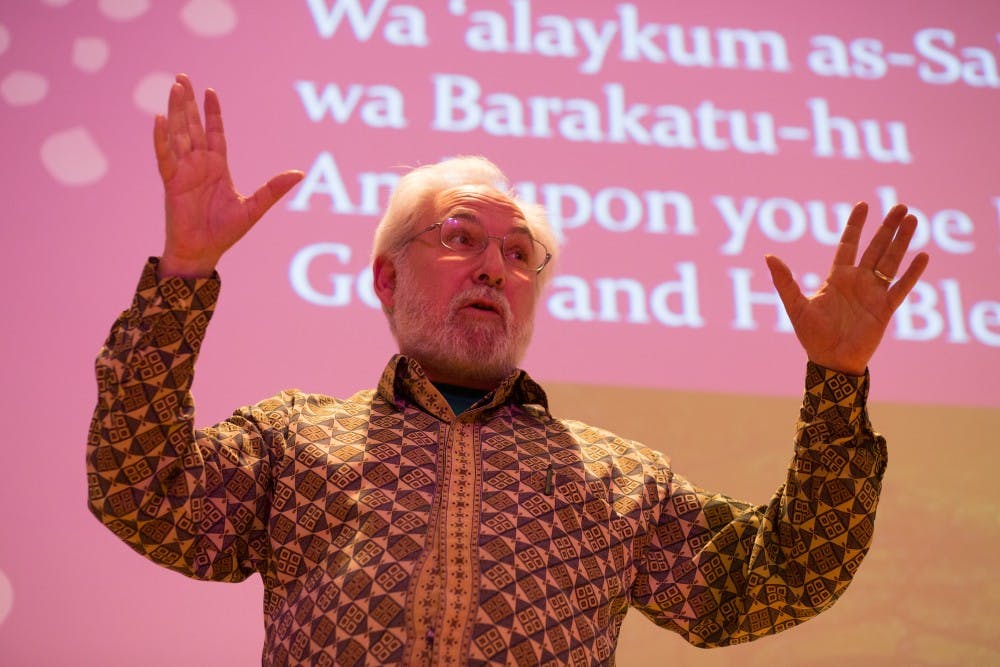Town Hall meeting discusses the variety of religious identity

Professor Talat Halman from the department of Philosophy and Religion, speaks about Islam during the Town Hall Meeting on identity and faith on April 3 in the Park Library Auditorium.
An intimate crowd attended the Faith, Identity and Free Speech Town Hall meeting at 3:30 p.m. on April 3, to have an active discussion about the spectrum of spiritualty.
About 10 people gathered in the Park Library Auditorium to join a panel of four speakers with different backgrounds at CMU. The panelists; Talat Halman, Shelby Bruseloff, Kelly Murphy and Sarah Domoff, educated the group about the different traditions and identities shaped by faith associated with Judaism and Islam, while sharing their individual perspectives and experiences.
The meeting, hosted by the Office of Institution Diversity and Office of Diversity Education, intended to include free speech in the discussion. However, the panelist who specialized in the topic was unable to attend due to illness.
Talat Halman, a religion professor at CMU who teaches Islam, Sufism and world religion classes, discussed hate crimes against Muslims all over the world. He emphasized the instances close to home, in Dearborn, which has the largest Muslim community in the country.
These hate crimes go beyond acts of vandalism --- it is also seen as violent threats. Halman cited recent an incident in Dearborn where a man was arrested while carrying explosives with intentions to burn down a local mosque.
Halman educated the group about the culture and noted that along with Judaism and Christianity, Islam is an Abrahamic religion. He also clarified a common misconception, that many think “Allah” is the Muslim word for “God,” when rather the word originated from the Arabic language.
Bruseloff, Murphy and Domoff discussed variations in the Jewish identity and religious traditions, describing both their personal thoughts and academic literature and findings.
“There are people who practice Judaism different ways,” said Murphy, professor of philosophy and religion. “The way that they are practicing Judaism is not the same religious tradition that we see and call Tanakh, (which) Christians call the old Testament."
Religious practices widely range from Orthodox Judaism, which strictly adheres to teachings to Reform Judaism, a branch regarded as more liberal, explained Bruseloff, who is a Jewish student life coordinator at Hillel Campus Alliance of Michigan.
Bruseloff said she practices Reform Judaism, and celebrates her religion in the ways best for her. For example, she celebrates holidays and reads the Tanakh, but does not keep kosher.
Nowadays, it is common for people to be Jewish as an ethnicity as opposed to religiously, said Domoff, a psychology professor at CMU.
"One in five Jews in the U.S. describe themselves as having no religion, 62% say that it is merely ancestry and culture," she said.
All of the speakers said there is a current rise of anti-Semitic attacks in the U.S. and on CMU’s campus.
"As someone who is Jewish, and (because) 40 of my family members died in the Holocaust, to see anti-Semitic jokes (on campus), which are not funny, it just kills something inside me,” Bruseloff said. “(It’s) so hard to see, and I'm the only that feels this same way."



